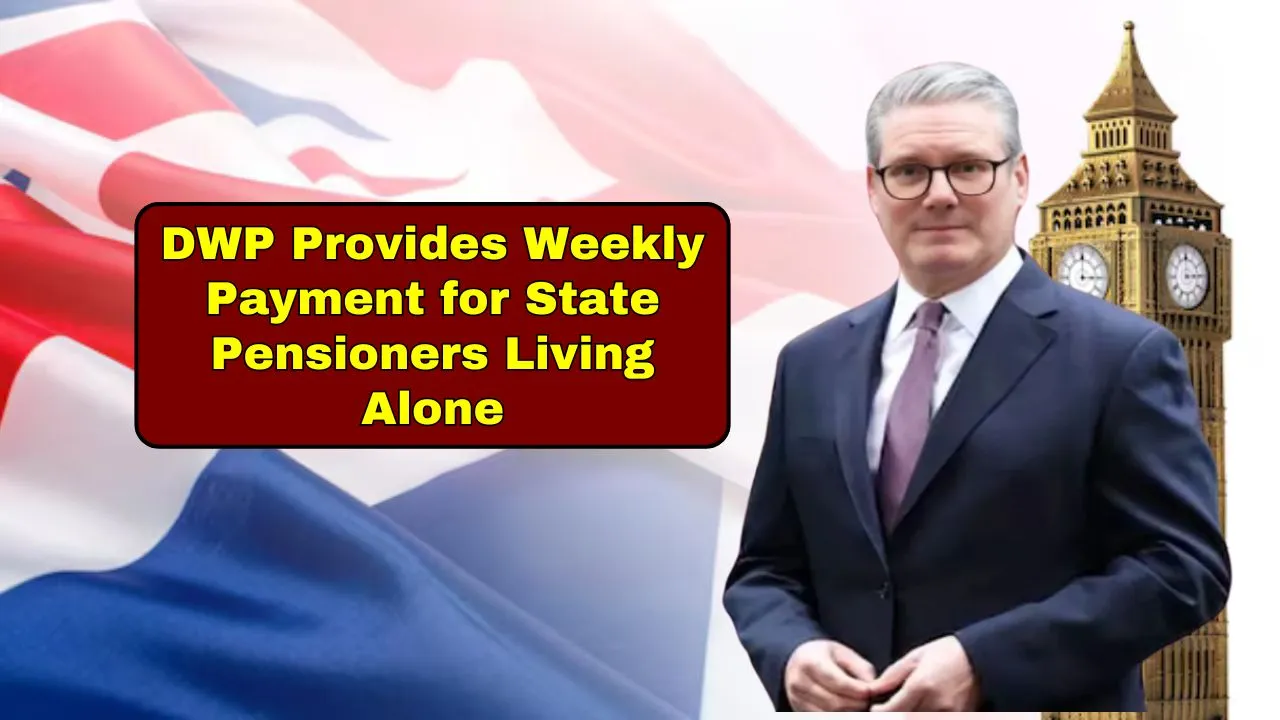£715 DWP Increase: In a significant move aimed at supporting older citizens, the UK government is introducing a £715 annual increase for pensioners born before 1959. This rise, driven by the Triple Lock system, promises to offer a much-needed boost to retirement income in the face of rising living costs. The commitment from the new Labour government to protect pensioners’ earnings reflects growing concerns over inflation, energy prices, and daily expenses.
Despite this positive development, not all pensioners are celebrating. While the increase may sound substantial, questions remain about its real-world impact after tax and inflation are factored in. Let’s take a closer look at what this increase means, who benefits, and how to make the most of it.
£715 DWP Increase – What Pensioners Should Know
The £715 DWP Increase will apply to individuals born before 1959 who are eligible for the New or Basic State Pension. The Triple Lock formula—based on whichever is highest among wage growth, inflation, or 2.5%—has once again ensured that pensions stay in line with economic shifts. This time, wage growth is the strongest driver, estimated at six percent. Pensioners receiving the New State Pension will see their weekly payments rise from £230.25 to about £244, adding up to £715 more over the year. For those on the Basic State Pension, payments will rise from £176.45 to £187 weekly, bringing a total annual gain of £548.60.
Overview Table
| Category | Details |
| Annual Increase Amount | £715 for New State Pension; £548.60 for Basic State Pension |
| Weekly New Pension | Increase from £230.25 to £244 |
| Weekly Basic Pension | Increase from £176.45 to £187 |
| Effective Date | April 2026 |
| Eligibility | Pensioners born before 1959 |
| Payment System | Automatically included in State Pension payments |
| Policy Mechanism | Triple Lock (inflation, wage growth, or 2.5%) |
| Primary Driver | Wage growth currently estimated at around 6% |
| Issuing Authority | Department for Work and Pensions (DWP) |
What the Triple Lock Means for Pensioners
The Triple Lock is a long-standing commitment to ensure that the State Pension doesn’t lose value over time. It guarantees that pensions rise by the highest of inflation, wage growth, or a fixed minimum of 2.5%. With wage growth leading this year, retirees will see their pensions increase accordingly.
This mechanism is crucial for preserving pensioners’ purchasing power. The government’s decision to retain the Triple Lock under the Labour administration reaffirms its priority to protect the retired population, particularly those on fixed incomes.
Role of Wage Growth and Inflation
In 2025, wage growth is outpacing inflation, which makes it the dominant factor in determining pension increases. Earnings growth is currently estimated around six percent. As a result, this drives the uplift rather than inflation, which, while still notable, is beginning to moderate.
According to financial experts, such as Aaron Peake from CredAbility, the reliance on wage data ensures that pensions continue to reflect real income trends. This means retirees are not just protected from inflation but also share in the economy’s overall growth, providing long-term stability.
DWP Confirms £737 Monthly PIP Payments For 2025 – Check What’s Changing
In parallel to the pension increase, the Department for Work and Pensions has also confirmed that monthly PIP (Personal Independence Payment) support will increase to £737 for 2025. This broader package of social support shows a consistent trend of targeting financial aid to the most vulnerable groups.
Together, these changes reflect the government’s wider strategy to reduce poverty and financial insecurity in older and disabled populations. While the focus here is on the £715 DWP Increase, this larger context underscores how pensions and disability benefits are being aligned for more comprehensive relief.
Financial Advice for Pensioners
To maximize the benefits from the £715 DWP Increase, financial experts advise retirees to take a proactive approach:
- Use high-interest savings accounts: With interest rates expected to stay high, easy-access savings accounts can provide a better return while keeping your funds accessible.
- Consider fixed-rate bonds: These offer higher rates than standard accounts if you can lock in your money for a set term.
- Review your tax bracket: Understand how the increase might affect your taxable income. This could be the difference between gaining £715 or a reduced net amount.
- Budget monthly spending: Treat the increase as a chance to offset rising food or energy costs without relying on credit.
Concerns About Rising Costs
While the increase is welcome, it doesn’t fully shield pensioners from economic pressures. A common concern is taxation. For many, this extra income might push them into higher tax brackets or reduce means-tested benefits. After 20% tax, some pensioners will receive closer to £550, not the full £715.
Moreover, the rising costs of food, energy, and council tax continue to erode the value of pension increases. Some pensioners argue that while the increase looks good on paper, it doesn’t always translate into real savings when everyday bills continue to rise.
While the Increase Offers Support, Value is Squeezed
There’s no doubt the £715 DWP Increase is a positive step. It reinforces the importance of the Triple Lock and the government’s commitment to older citizens. However, pensioners are right to remain cautious. The real-world value of this boost can be diminished by tax and ongoing inflation. To counter this, pensioners should stay financially informed and make use of tools like budget planners and savings calculators.
FAQs
What is the Triple Lock system?
The Triple Lock ensures that State Pensions increase annually by whichever is highest: inflation, average earnings growth, or 2.5%.
How much will my pension increase in 2026?
If wage growth remains at six percent, those on the New State Pension will get around £244 per week, equating to £715 more annually.
Who qualifies for the £715 increase?
Pensioners born before 1959 and receiving either the Basic or New State Pension will benefit from the rise.
Is the £715 increase taxed?
Yes, it may be subject to income tax depending on your overall taxable income, possibly reducing the net amount to around £550.
What can I do to make the most of the increase?
Explore savings options like high-interest accounts or fixed-rate bonds and be aware of how your tax status may affect your take-home income.
Final Thought
The £715 DWP Increase Coming for Pensioners Born in Selected Years offers welcome relief for many pensioners, but it also highlights the need for strategic financial planning. As the cost of living continues to challenge retirees, every pound counts. By understanding the implications of the Triple Lock, being mindful of taxes, and taking steps to save wisely, pensioners can make this increase go further.
We encourage you to share how this increase will impact your life in the comments below. Know someone who should be aware of this change? Pass the article along and help spread the word. For more on pensions, savings, and budgeting tips, explore our latest guides tailored for UK retirees.








